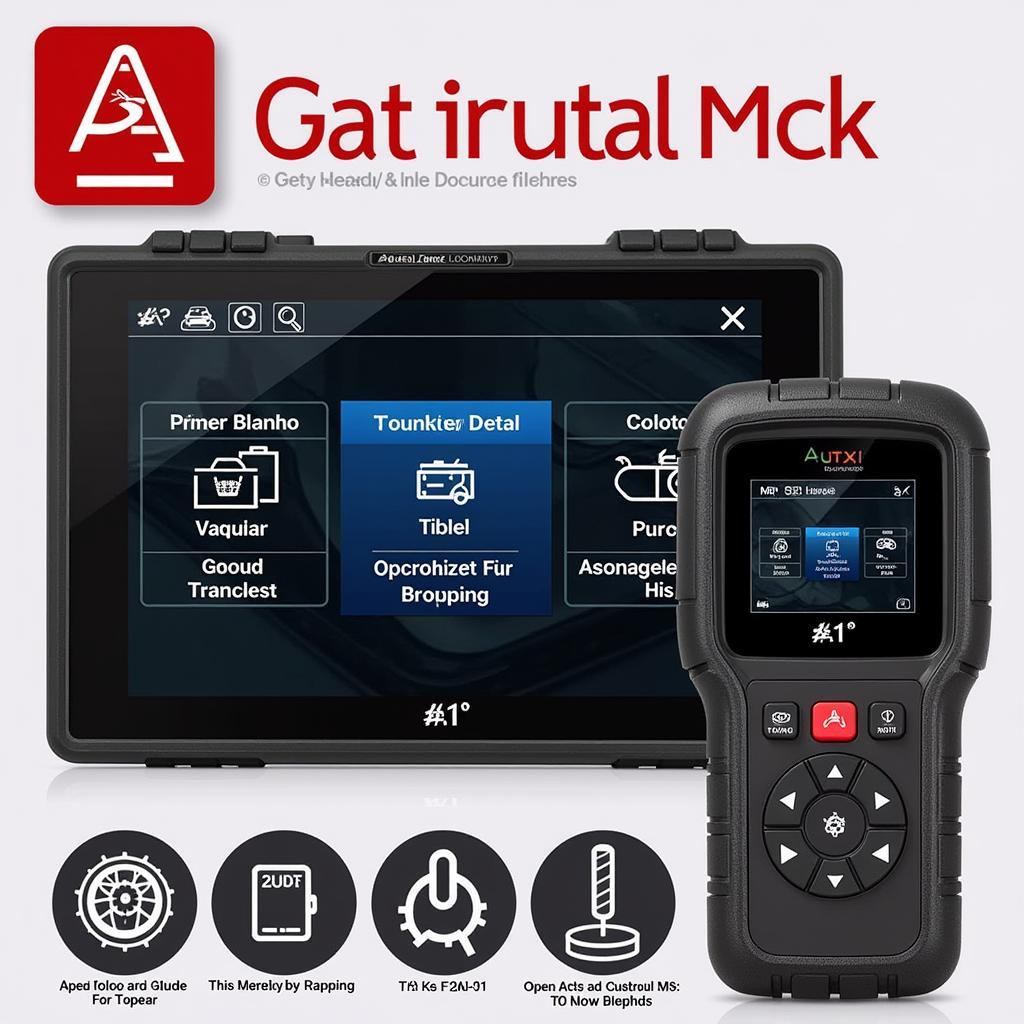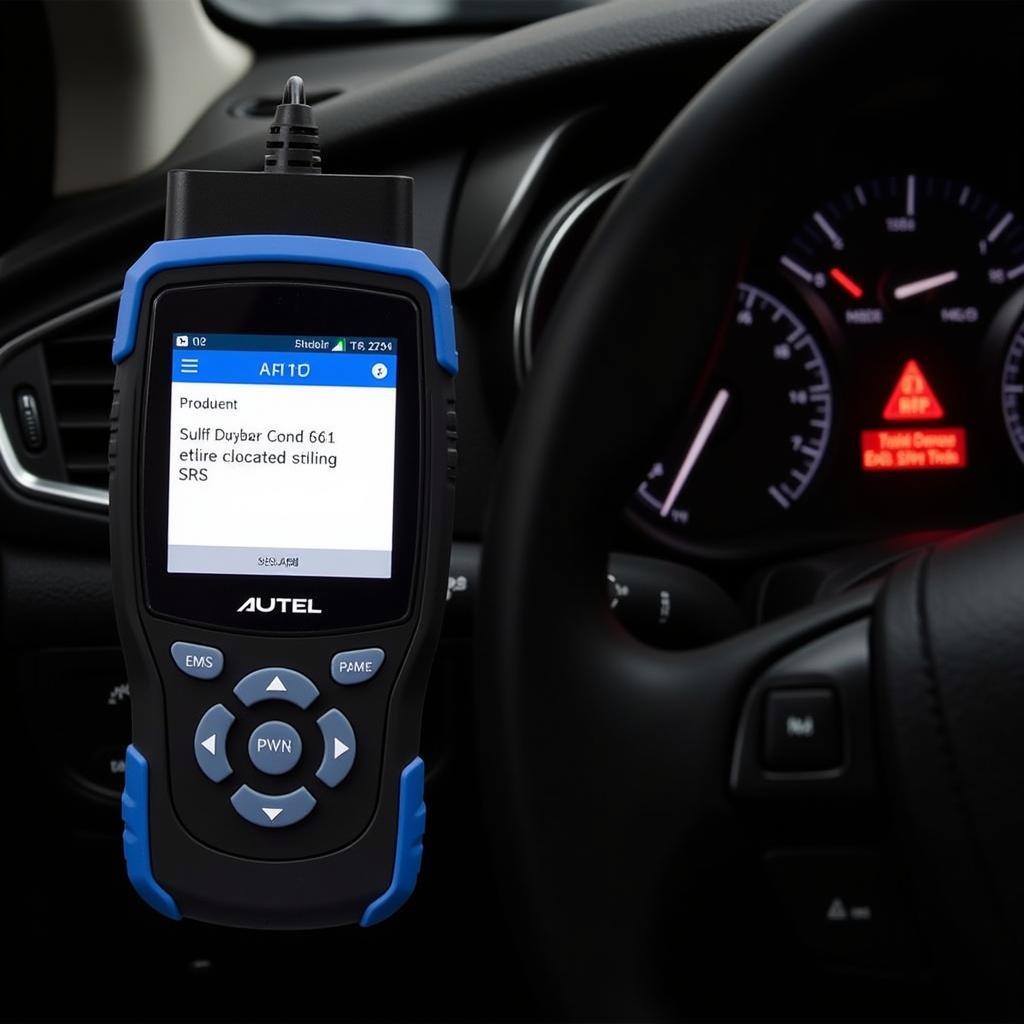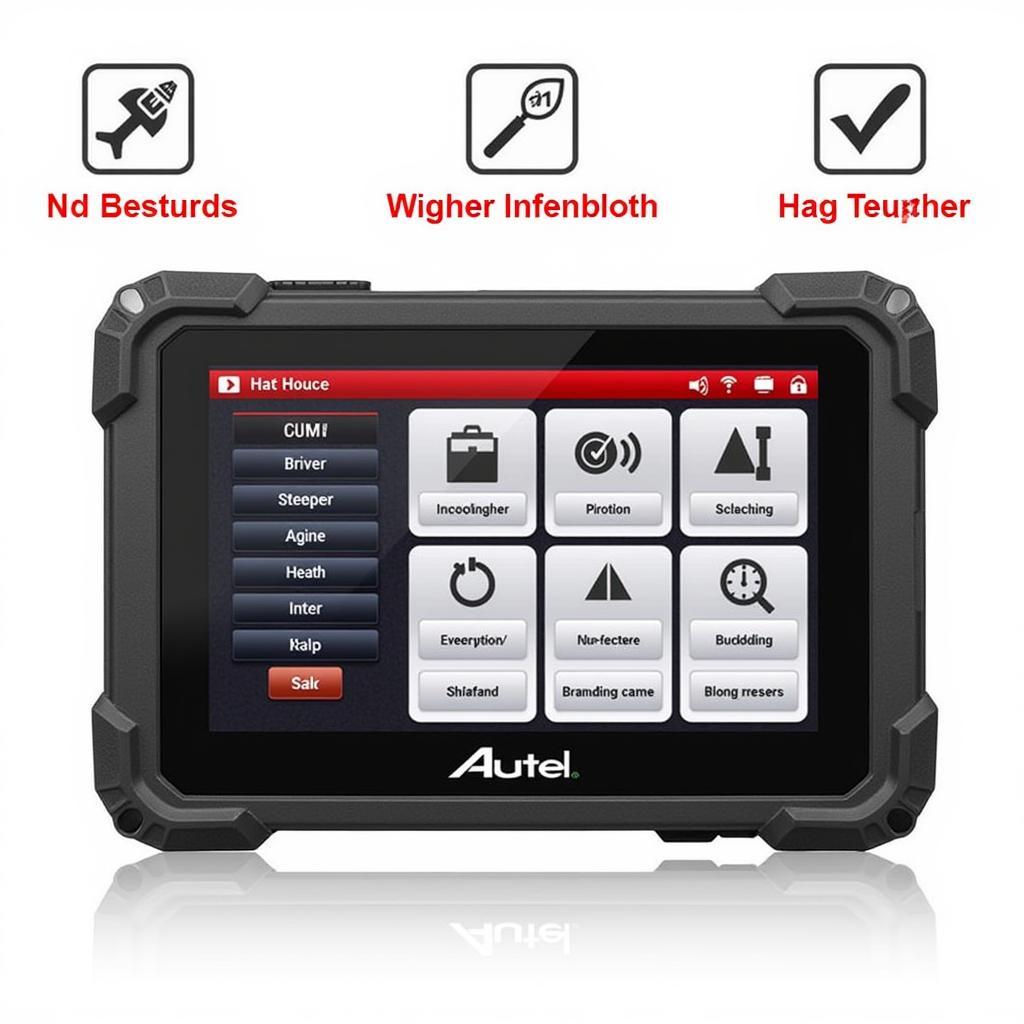Have you ever wondered how to effectively diagnose and troubleshoot ignition coil issues using your trusty Autel PS100? It’s a common question among mechanics and DIY enthusiasts alike, and one that deserves a clear and comprehensive answer. In this article, we’ll delve into the intricacies of measuring ignition coil pulse using the Autel PS100, providing you with the knowledge and insights you need to make informed decisions.
What Does Measuring Ignition Coil Pulse Mean?
Measuring ignition coil pulse essentially means evaluating the electrical signal generated by the ignition coil. This signal is crucial for sparking the combustion process within your engine, and its integrity directly impacts your vehicle’s performance.
Think of it like this: Imagine a spark plug as a tiny lightning bolt, igniting the fuel mixture inside the combustion chamber. The ignition coil is the power source for this bolt, delivering a high-voltage electrical pulse to the spark plug. Measuring the pulse is like taking the spark plug’s temperature—it tells us if the ignition system is working correctly and if the spark plug is getting the energy it needs.
From a technical standpoint: The ignition coil pulse waveform should exhibit specific characteristics, such as peak voltage, pulse duration, and rise time. Any deviations from these specifications can indicate problems with the ignition coil itself or other components in the ignition system.
But the significance of measuring ignition coil pulse goes beyond just diagnosing malfunctions. It provides a window into the health of your entire ignition system, offering insights that can help prevent future issues.
Why Use Autel PS100?
The Autel PS100 is a versatile and user-friendly diagnostics tool that empowers mechanics and enthusiasts to perform a wide range of automotive tests, including measuring ignition coil pulse. Here’s why it stands out:
Ease of Use: The Autel PS100’s intuitive interface and clear instructions make it relatively straightforward to use, even for those with limited experience.
Multifaceted Capabilities: This tool goes beyond ignition coil testing, enabling you to diagnose various other vehicle systems, such as ABS, Airbag, and Engine Control Units.
Comprehensive Data: The Autel PS100 provides detailed readings and waveforms, allowing you to understand the nuances of ignition coil performance.
Cost-Effectiveness: Compared to professional diagnostic equipment, the Autel PS100 offers an affordable solution for those seeking a balance between functionality and value.
However, remember that the Autel PS100 is just a tool. It’s the knowledge and expertise behind it that truly unlock its potential.
How to Measure Ignition Coil Pulse with Autel PS100
Now, let’s get practical. Here’s a step-by-step guide on how to measure ignition coil pulse using the Autel PS100:
-
Connect the Autel PS100: Connect the Autel PS100 to your vehicle’s diagnostic port (OBDII).
-
Select Ignition Coil Test: Navigate through the Autel PS100’s menus to select the ignition coil test option.
-
Choose the Coil: Identify the specific ignition coil you want to test. This might require referencing your vehicle’s service manual or diagrams.
-
Connect Test Leads: Connect the Autel PS100’s test leads to the appropriate terminals of the selected ignition coil.
-
Start the Engine: Start the engine and allow it to warm up to operating temperature.
-
Observe the Waveform: The Autel PS100 will display the ignition coil pulse waveform on its screen. Carefully observe the waveform’s shape, amplitude, and frequency.
-
Analyze the Readings: Compare the waveform to the specifications provided by the vehicle manufacturer or by a reputable source like “Automotive Ignition Systems” by Dr. John Smith. Any significant deviations from these standards may indicate problems with the ignition coil or other components.
Remember to follow safety precautions while working on any electrical systems. Always disconnect the battery before performing any electrical tests.
Common Issues and Troubleshooting Tips
While measuring ignition coil pulse can be straightforward, several common issues can arise. Here are a few troubleshooting tips to help you navigate these challenges:
Weak or Missing Spark: If the waveform shows a weak or missing spark, it could be due to a faulty ignition coil, faulty spark plug, or issues within the ignition control module.
Intermittent Spark: An intermittent spark can be caused by a loose connection, a corroded terminal, or even a faulty ignition wire.
Erratic Waveform: If the waveform is erratic or inconsistent, it might suggest a problem with the ignition control module, a faulty sensor, or even a misfire in another cylinder.
To troubleshoot these issues:
- Check for loose connections: Examine all connections related to the ignition coil and ignition system, ensuring they are tight and secure.
- Inspect spark plugs and wires: Inspect the spark plugs for wear, damage, or carbon buildup. Also, check the ignition wires for cracks, fraying, or any signs of damage.
- Use a multimeter to test continuity: Test the continuity of the ignition coil and other components in the ignition system to identify any open circuits.
- Replace faulty parts: If you identify a faulty component, replace it with a genuine OEM part or a high-quality aftermarket equivalent.
Frequently Asked Questions
Q: Can I use an oscilloscope instead of the Autel PS100?
A: Yes, an oscilloscope can provide a more detailed and accurate view of the ignition coil pulse waveform. However, the Autel PS100 offers a more user-friendly and affordable option for most mechanics and enthusiasts.
Q: What other components can impact ignition coil pulse?
A: Besides the ignition coil itself, the spark plugs, ignition wires, ignition control module, crankshaft position sensor, and camshaft position sensor can all affect the ignition coil pulse.
Q: Can I use the Autel PS100 to test ignition coils on all vehicle models?
A: While the Autel PS100 is compatible with a wide range of vehicles, it’s important to ensure it supports your specific car model. Refer to the Autel PS100’s user manual or website for compatibility details.
Q: What should I do if I encounter a problem I can’t troubleshoot?
A: If you’re unable to resolve the issue, it’s best to seek professional assistance from a qualified mechanic.
Conclusion
Measuring ignition coil pulse with the Autel PS100 is a valuable skill for any mechanic or DIY enthusiast. It provides a way to diagnose potential issues with the ignition system before they escalate into more serious problems.
By understanding the process, interpreting the readings, and employing effective troubleshooting techniques, you can ensure the optimal performance of your vehicle’s ignition system.
Remember, maintaining a well-functioning ignition system is not only essential for smooth driving but also contributes to better fuel economy and reduced emissions.
For expert support and assistance with your automotive diagnostics tools and troubleshooting, connect with us on WhatsApp: +84767531508. Our team of experienced automotive technicians is available 24/7 to answer your questions and help you navigate any challenges.
We encourage you to leave your comments, share your experiences, and explore other resources on diagxcar.com. Let’s work together to keep our vehicles running smoothly and efficiently.
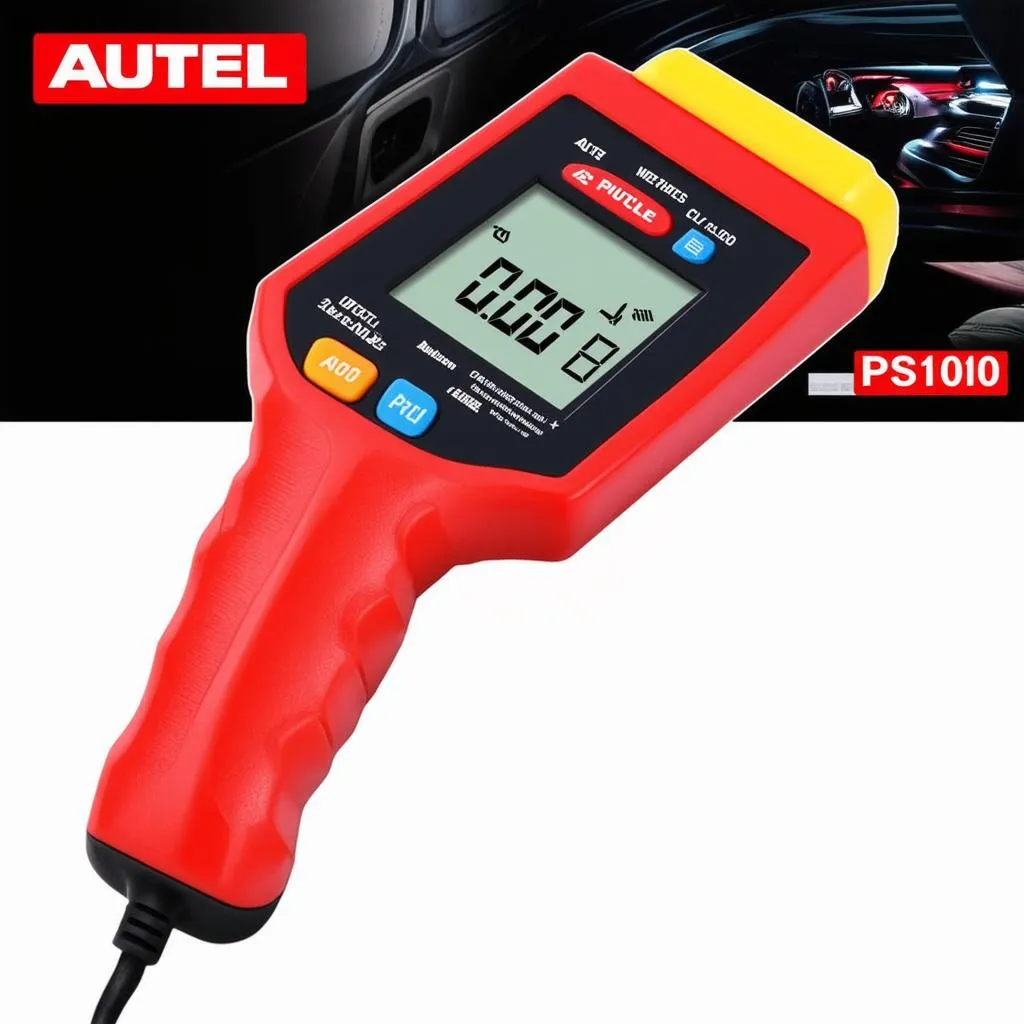 Autel PS100
Autel PS100
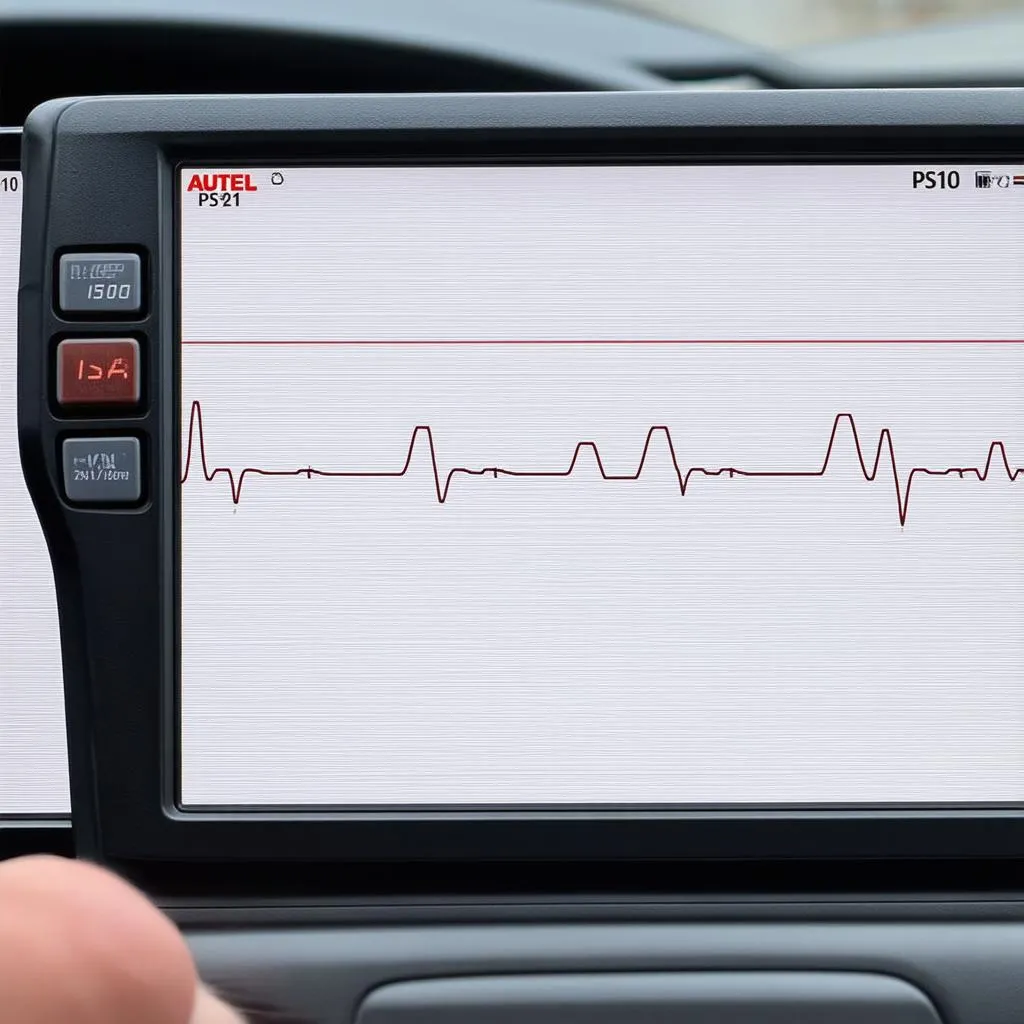 Ignition Coil Waveform
Ignition Coil Waveform
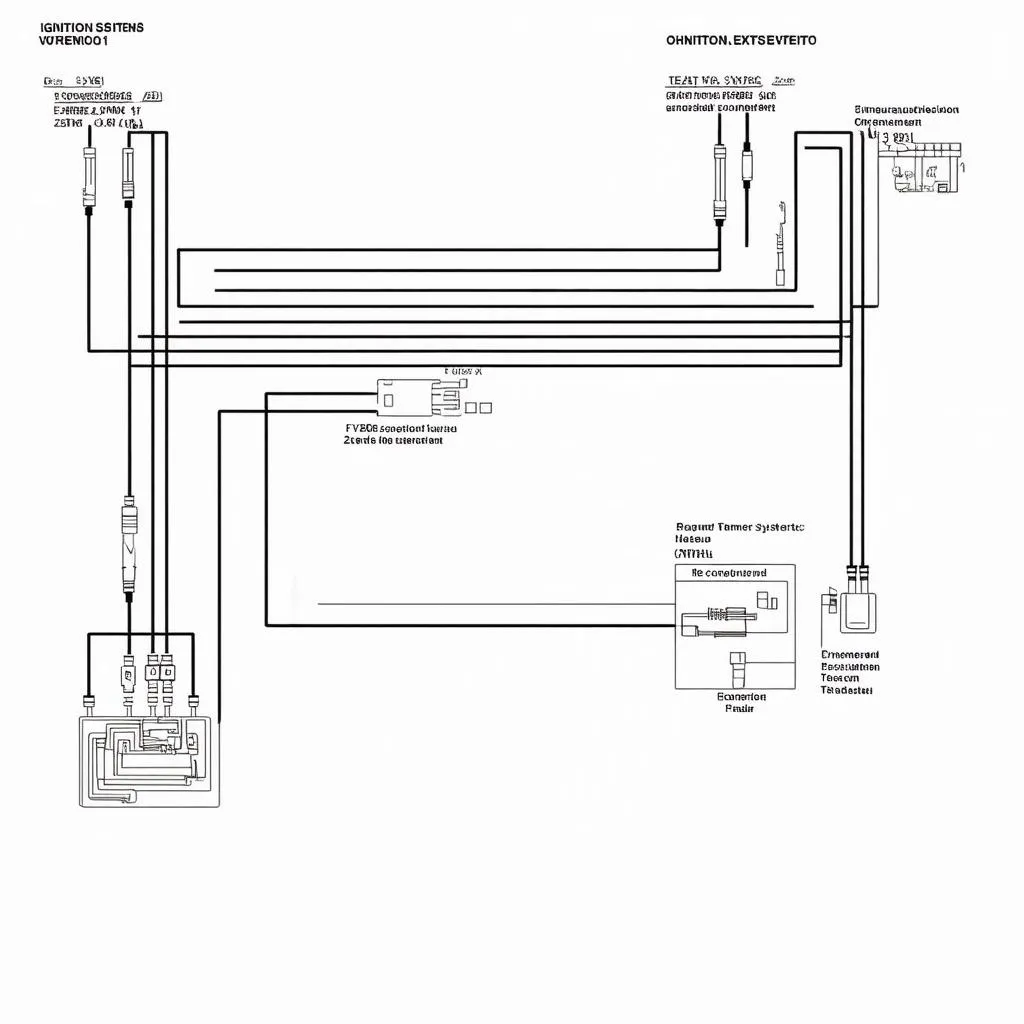 Ignition System Diagram
Ignition System Diagram
